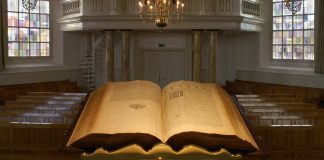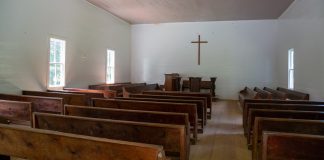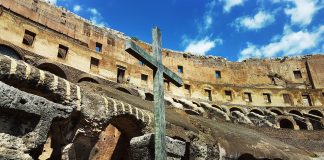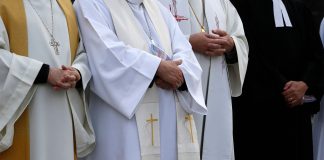The Waldenses | The poor of Christ
The “poor of Christ”, the “poor of Lyon” or, simply, the “brothers” never called themselves “Waldenses” until they joined the Reformation. The derisive appellative was given to them by their persecutors, after the name of the man who consolidated the doctrine of the community.
The Ecumenism Files III: From the Reformation to Postmodernity
The dialectical spirit of ecumenism gives rise, among other things, to a question whose full answer is still awaited: How is it that the critical spirit and rationalism of Enlightenment origin, combined with making the Bible available to ordinary people, has led to so many schisms?
The little giant
“Born in a home where the scant necessities of life were luxuries, when he left the world for heavenly scenes of labour, he bequeathed it his possessions–two silver spoons, a silver teapot, a well-worn frock coat the Methodist Church”[1] Basil Miller
The Ten Commandments
The book of Exodus is the second book in the Bible. It follows God’s servant Moses leading the Israelites out of slavery and through the desert towards the hoped-for Promised Land. Along the way, they stop at Mt Sinai. Moses goes up the mountain and receives from God ten commandments carved on a stone tablet. This is one of the most famous sections...
“All the places to go… How will you know?” | Book review
The book written by John Ortberg, All the Places to Go... How Will You Know? invites us to reflect on the discerning of God’s will for our lives.
The great persecution
A movement so alive and distinct from the imperial cults, as Christianity was, could not fail to attract the attention of temple servants, intellectuals, and officials.
The Ecumenism Files Part II: Ecclesial unity and the terror of medieval (religious) history
The troubled centuries that followed the Great Schism of 1054 and the corresponding climate inside the Christian church gradually gave way to profound shifts in the thinking and spirituality of Europeans.
The meaning you find on your way back
In Western tradition, starting with Thales of Miletus, philosophers have always sought answers to questions that transcend the material, tangible world. One of the most burning questions that has lasted for centuries and has troubled many enlightened minds is the dilemma of the meaning of life.
A Bible for everyone
Little Welsh girl Mary Jones anxiously walked the 40 kilometres. She couldn't wait to buy a Bible in her language, as she had been saving for it for more than six years. But when she reached the shop of Mr Charles, her pastor and teacher, she found with despair that all the Bibles were either sold or already spoken for.
“All religions are good.” True or false?
Globally there are 19 major religions, divided in turn into 10,000 religious groups. Each group claims to be the holder of the Truth. If one of them really holds the Truth, that means there are about 9,999 false religious groups.
Saved in the surf
Growing up on the sunny east coast of Australia meant summers at the beach. I was no surfer dude but the crash of waves and unmistakable squeak of hot sand was often a soundtrack in my adolescence. It’s easy to romanticise the white sand beaches and crystal blue hues of Australia’s coastal waters but now, particularly as a parent, I am aware of the danger...
The greatest love
The word sacrifice is not really a pleasant word. When you hear it, you may think of weird archaic rituals involving blood and animals. You may think of giving up something you love or like to save money or to save your waistline. Sacrifice is not a word we use often, and it’s often used with negative associations. But in a strange twist, the action...
The Ecumenism Files Part I: From the Apostolic Church to the Great Schism
In the face of the hundreds of Christian confessions that exist today, the ecumenical efforts of the last decades have invariably raised some complementary and equally legitimate questions: Is Jesus' desire "that all of them may be one" (John 17:21) possible?
The luxury of knowing why
Nothing can prepare us in advance for the suffering we will experience in this life. But even knowing this, we often remember with guilt the moments of blissful ignorance we had before suffering hit us.
Sacred writings
How do the Christian Scriptures differ from non-Christian sacred writings (the Quran, Vedas, Dharmas, Book of Mormon, etc.)?


























